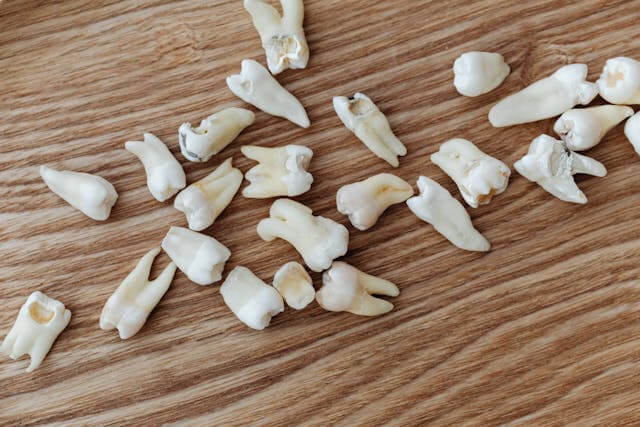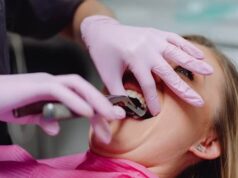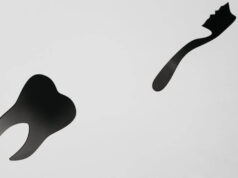Did you know that tooth decay and complications arising from it account for the most reason people seek dental treatment every year? Your mouth is home to an army of bacteria that can secretly cause problems in your teeth. These tiny invaders produce acid that attacks the enamel, hard protective outer layer of your teeth. This destructive process is what we call tooth decay, also known as dental caries or cavities when the decay bores a hole.
Understanding how this happens and what you can do about it is essential for maintaining a healthy smile. Stay with me as we tour the causes, symptoms, home remedies, and professional treatment of tooth decay
What Is Tooth Decay?
Tooth decay or dental caries is the process that starts when the bacteria in your mouth act on remnants of free sugar and produce acids that erode the enamel. This process can lead to the formation of cavities if not addressed in time.
Cavities are the actual holes or visible damage that form in your teeth as a result of advanced tooth decay not addressed in time.
What this means is that dental caries can occur with or without a visible cavity.
So, think of them this way, tooth decay is the ongoing process of damage, while cavities are the outcome of it.
Causes of Tooth Decay
A number of factors are key in the development of dental caries and they include the following:
1. Bacterial Activity
Your mouth has a bustling amount of bacteria, and some of them are not very friendly. These bacteria love to feast on the sugars and starches left over from your meals. As they feast, they produce acids that attack your enamel, slowly breaking it down.
2. Poor Oral Hygiene
Without proper oral hygiene, plaque, a sticky film full of bacteria—builds up on your teeth. This plaque is the perfect playground for bacteria to thrive and cause decay. Skipping out on brushing and flossing? I am sure you know better now.
3. Dietary Habits
Frequent consumption of sweets and sodas provides a constant source of fuel for bacteria to produce harmful acids, speeding up the decay process.
4. Susceptible Tooth
Occlusal surfaces of posterior teeth with deep pits and fissures are more susceptible to dental caries than other tooth surfaces. This is because these surfaces encourage retention of food debris, affording bacteria ample time to act on them and produce acidic substance that causes tooth decay.
5. Lack of Fluoride
Fluoride is essential for the teeth. It helps to strengthen the enamel and make it more resistant to acid attacks. Without enough fluoride, your teeth become more vulnerable to decay.
6. Dry Mouth
Saliva is like a natural mouthwash. It helps to wash away food particles and neutralize harmful acids. Certain medications or medical conditions that reduce saliva production can lead to dry mouth, increasing the risk of tooth decay.
Treatment of Tooth Decay
Talking about the treatment for tooth decay, we shall be discussing certain home remedies, which of course, are not the definitive treatment but serve as first aid treatment. We will also highlight professional treatments for dental caries.
First-Aid Treatment for Tooth Decay
It is important we touch on certain home remedies for dental caries, because many people live in environments where they may not be able to access dental care easily. Others may have very tight schedules that might make it difficult for them to schedule an appointment with their dentist in the shortest possible time.
It’s also important to note and remember that these first-aid measures are not substitutes for professional dental treatment. If you have tooth decay, It’s advisable to see a dentist as soon as possible to ensure proper treatment and prevent serious complications.
While we maintain that professional dental care is crucial, and don’t recommend self-medication, some of the first-aid measures you can take to ease discomfort before seeing a dentist include:
Warm Saline Rinse: Rinse your mouth with warm saline water to reduce bacteria and alleviate pain. Warm saline rinse reduces inflammation by its antibacterial activity. This is very effective especially when food packing into the cavity is what triggers the pain.
Over-the-Counter Pain Relief: Use pain relievers like ibuprofen or acetaminophen to manage pain and reduce inflammation. It is important you note that pain relievers don’t cure toothache. They can only relief the pain temporarily. So, it is a risk to continue to take analgesic because of a toothache. Self medication with pain relievers is permissible for 2-3 days. You should seek professional help after the third day.
Avoid Trigger Foods: Stay away from sugary, acidic, hot, or cold foods and drinks that can exacerbate the pain.
Good Oral Hygiene: Continue brushing gently with fluoride toothpaste and flossing carefully to keep the area clean.
Professional Treatment Options for Tooth Decay
Here are some common treatment options for tooth decay.
1. Fluoride Treatments
If tooth decay is detected early, fluoride treatment can help arrest the disease process by promoting remineralisation of your enamel. Fluoride in the form of gel, varnish or foam can be applied directly to the affected teeth to halt dental caries.
2. Filling
If there is a visible cavity due to caries, a filling is used to restore the tooth. The decayed part is removed, and the cavity is filled with a tooth-coloured filling material such as composite resin. Treatment with a filling material is only possible if the tooth decay is not extending into the pulp.
3. Root CanalTherapy
If tooth decay reaches the inner part ( pulp) of the tooth, a root canal treatment may be required. This involves removing the infected or damaged pulp, cleaning the inside of the tooth, and sealing it to prevent further infection. A crown is often placed on top of the treated tooth to provide additional support and protection.
4. Crowns
After root canal therapy, your dentist will place a crown (cap) on the tooth. The crown is a tooth-coloured, custom-made cap that is shaped like a tooth and is used to restore its shape, size, appearance, and function. It also increases the strength of the tooth.
5. Extractions
In cases where the tooth is extensively damaged and cannot be saved, an extraction may be necessary. After removing the tooth, your dentist may discuss options for replacing it, such as implants, bridges, or dentures.
Prevention of Tooth Decay
Treatment of tooth decay is quite expensive, especially if you are paying out of pocket. That is why it is important we discuss some preventive measures for dental caries. They include the following:
1. Cut down on sugar
We cannot overemphasise the role of dietary free sugar in the formation of tooth decay. If intra oral bacteria are denied free sugar, they will not be able to produce byproducts that destroy the tooth. So, it is essential you avoid consumption of food products containing free sugars.
2. Maintain good oral hygiene
Brushing your teeth with fluoridated toothpaste helps you to fight against dental caries. A good toothpaste contains antibacterial substances that reduces the bacteria load. Brush your teeth twice daily and floss regularly.
3. Treat Susceptible Teeth
Fissure sealants can be placed on teeth with deep pits and fissures to prevent food debris from lodging into them. Fluoride therapy can be done for teeth that are hypomineralized and hypoplastic teeth.
4. Regular Dental Checks
Even if you don’t have any symptoms, it’s important to see a dentist for regular check-ups and cleanings, usually every six months. This helps maintain oral health and catch potential problems early.
5. Stay Hydrated
Drinking enough water helps to prevent dehydration. Dehydration encourages dry mouth and bacteria growth. With increase in bacteria load risk of developing is increased. Hydrating well helps in saliva production. Saliva is important in washing away food particles and bacteria, thus reducing risk of developing dental caries.
Conclusion
Tooth decay is a common dental issue. It is both preventable and treatable. Knowing when to visit a dentist and the significance of professional care allows you to take proactive measures for maintaining your oral health, because professional treatment is tailored to effectively manage tooth decay and restore oral health.
By staying on top of your oral hygiene, making smart dietary choices, and visiting your dentist regularly, you can keep tooth decay at bay and maintain a healthy smile. Remember, your teeth are not just tools for eating; they play a vital role in your overall health and well-being. So, take care of them.









